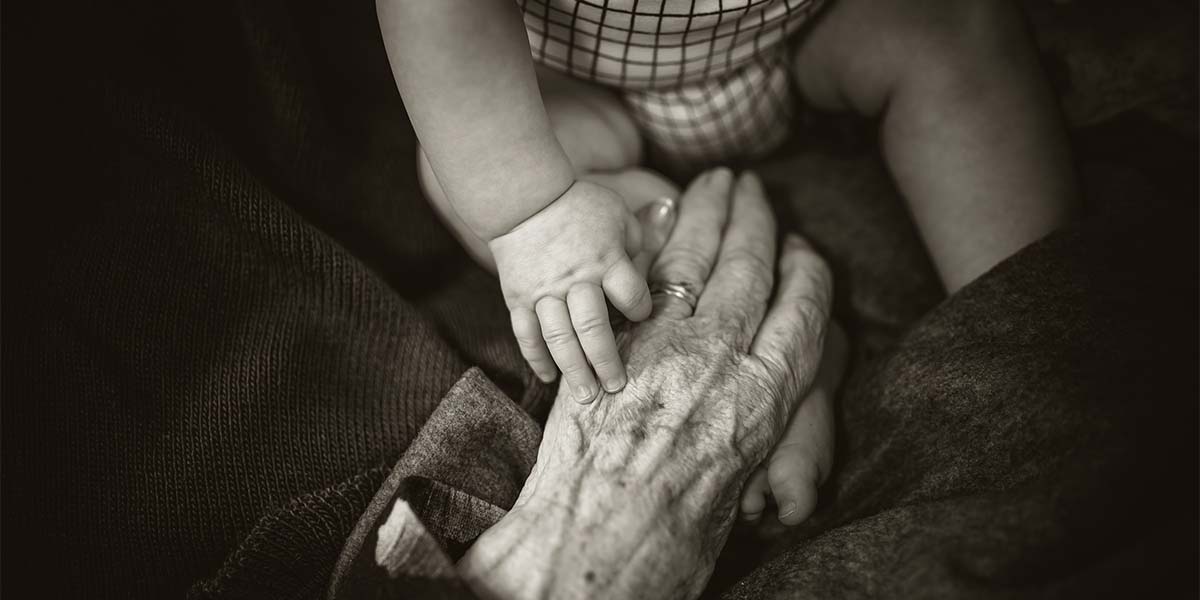
Dealing With Your Parents’ Divorce as an Adult
Starting college or moving out on your own can feel like stepping into an entirely new chapter of life. You’re navigating independence, new responsibilities, and all the unknowns of adulthood. But what happens if right as you’re beginning your own life, your parents’ marriage is ending? It's challenging at any age when your parents divorce, but it can feel deeply complicated when you are an emerging adult trying to make sense of it all.
When You’re Starting Your New Life and Your Parents Are Too
For many young adults, a parent’s divorce during the college years, or just after moving out, creates a unique kind of upheaval. While you’re navigating your own transition, your parents are also navigating their own. Suddenly, the family structure you’ve always known is changing, and you may feel torn between focusing on your own growth and tending to the pain of those you love. Being put in this position as a young adult can stir up a number of issues, such as role-conflicts, identity struggles, and sometimes even direct ‘choice conflicts’. As a therapist who works with adult children of divorce, I want to reassure you: this experience is not only common, but also survivable.
the double transition: two lives changing at once
Moving out or moving on often comes with a mixed bag of emotions; perhaps excitement about independence, fear of the unknown, or sadness over leaving what’s familiar. When your parents divorce during this same season, those feelings can intensify. It may feel like the safety net you thought you had has disappeared just as you were getting started.
You might notice:
- Feeling split between wanting to support your parents and needing to establish your own independence.
- Questioning your sense of home and belonging (what does “family” look like now?)
- Experiencing loyalty conflicts when one or both parents expect you to take sides.
- Worrying that you’re being “selfish” for focusing on your studies, career, or new relationships while your parents are hurting.
From a Cognitive Behavioral Therapy (CBT) perspective, these worries often show up as maladaptive thought patterns:
- “I’m abandoning my family if I don’t go home every weekend.”
- “I should be stronger; I’m an adult now.”
- “My parents’ divorce shouldn’t affect me this much.”
These thoughts are understandable, but they’re not necessarily helpful or true. One of the first steps is learning to catch them, challenge them, and gently reframe them:
- “It makes sense that this is affecting me; my family is important to me.”
- “I can love my parents and still set boundaries.”
- “I deserve to keep building my own life.”
This doesn’t erase the pain, but it helps you untangle guilt from reality.
the weight of a choice conflict
Many adult children of divorce describe feeling trapped in what I call a “choice conflict”. This happens when it feels like you have to pick between one parent or the other; or between your parents’ needs and your own. Choice conflicts could sound like:
- “If I spend Thanksgiving with Mom, Dad will be devastated.”
- “If I tell Mom I can’t talk right now, she’ll think I don’t care about her.”
- “If I choose to stay at school instead of going home, I’m abandoning both of them.”
These conflicts are deeply painful, because no matter what you choose, it feels like you’re letting someone down. The truth is, though, that you always have another option: to choose yourself. “Choosing yourself” doesn’t mean turning your back on your parents. It means recognizing that you also have needs, feelings, and dreams that matter and refusing to lose yourself in the chaos.
give yourself permission to feel
One of the core ideas in person-centered therapy is that every feeling you have is valid. You don’t have to filter your emotions through what you think you “should” feel.
You may feel sad one moment and relieved the next. You may feel angry at one parent and protective of the other. You may even feel grateful for new opportunities the divorce brings, like a closer bond with a sibling or space away from unhealthy dynamics. For example, instead of asking, “Is it okay that I feel this way?” try asking, “What is this feeling trying to tell me?”. Some ways to practice emotional permission include:
- Journaling without judgment. Write down what you’re actually experiencing, not what you think you should be experiencing.
- Talking with trusted friends or a therapist who won’t minimize or dismiss your emotions.
- Allowing yourself to grieve. Divorce is a loss, not just for your parents but for the family identity you once knew.
Remember: you are allowed to feel without rushing to fix.
practical strategies to stay grounded
Emotions can be overwhelming, and grounding yourself with practical steps can help you stay steady. In addition to basic mindfulness and grounding exercises, try practicing these strategies:
- Set Boundaries with Compassion
You don’t have to be your parent’s confidant or therapist. It’s okay to say: “I care about you, but I can’t hold this right now.” Boundaries protect both you and the relationship. - Stay Connected on Your Terms
You may want to maintain relationships with both parents, or you may need distance from one. Your choices don’t have to follow anyone else’s rules. - Anchor Yourself Outside the Family
Friends, mentors, clubs, or campus resources can offer the stability you may be missing at home. Creating new “chosen families” doesn’t mean you’re rejecting your own, it means you’re expanding your support. - Challenge All-or-Nothing Thinking
Just because your family dynamic has changed doesn’t mean your sense of belonging is gone forever. Families evolve. New traditions can form. Bonds can remain, even if they look different.
choosing yourself is not selfish
One of the biggest fears my clients carry is that choosing themselves means they’re selfish or abandoning their family. I want you to hear this clearly: choosing yourself is not selfish. In fact, it’s often the healthiest thing you can do. When you attend to your own mental, emotional, and physical needs, you have more clarity, resilience, and compassion to bring to your relationships, including with your parents. It’s like a paradox: the more you protect your energy, the more authentic and sustainable your care for others becomes.
you’re allowed to build something new
Divorce changes families, but it doesn’t erase them. You still belong. And at the same time, you are allowed to build a life that is fully your own. That may mean creating new traditions, redefining “home,” or embracing independence in ways your parents might not always understand. It may mean grieving what’s lost while also celebrating what you’re gaining: freedom, resilience, and the power to write your own story. And when you feel caught in the tug-of-war of other people’s expectations, remember this: if you find yourself in a choice conflict, choose yourself.
At Lifeologie Counseling Dallas, I specialize in helping adult children of divorce and clients with chaotic family backgrounds make healthy life choices and heal from the past. Reach out and book a session with me today at (214) 357-4001!

About Pierce Anderson
Looking for a therapist in Dallas, TX? Lifeologie Counseling LPC Associate Pierce Anderson supports adults through stress, identity struggles, divorce recovery, sports performance challenges, and difficult life transitions. Pierce is warm, approachable, and committed to understanding and integrating each client’s unique perspectives, aiming to empower them to regain control over their lives and achieve greater autonomy.
Meet Me.png)
.png)


